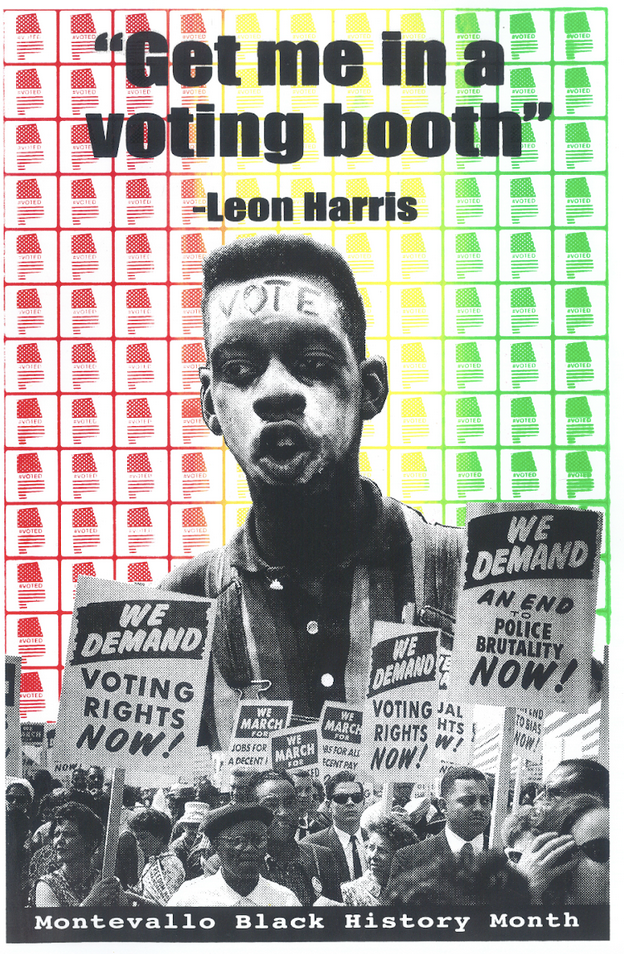Born to the Suburban League: The Legacy We Inherited – Part III
Ed. note: In this concluding piece of a three-part series, native son Dr. Elvin Thompson--author and historian--continues the story of how Montevallo’s Suburban League shaped his lifelong commitment to activism. Last month he wrote about his involvement as a teenager in Jesse Jackson’s 1984 presidential campaign, paying tribute to local men who mentored and guided him. This final instalment returns to the Jackson campaign and beyond, bringing to a beautiful close an arching meditation on the power of small acts. – kk & js
There were Saturdays when just a couple of us would squeeze into a car—no fanfare, no headlines—and ride off to Montgomery or Tuscaloosa. We weren’t part of any grand caravan. We were young Black men from Montevallo, following the call the best way we knew how. Those drives were long and winding, full of talk—some nervous, some bold, all of it sincere. But it wasn’t the flyers or voter registration forms that left the imprint. It was the atmosphere.
The air in those rooms buzzed—electric with Black folks from all over, tired but smiling, focused but full of grace. They came from storefront churches and college campuses, beauty salons and factory shifts. No one was putting on. It was just people, real and reaching. We didn’t hang around. We’d gather what we came for and head home. But every time, something followed us back. Something lingered.
Poster designed in 2025 by Adrian Mayton for a Montevallo HS art project coordinated by Kymberlee Lewis. The League lives on!
It was more than strategy. More than signs and slogans. It was the spirit of ordinary people choosing to believe that their small acts mattered. I remember leaning against a wall in one of those meetings, scanning the room, and whispering to myself, “Whatever this is—I want it for life.” That wasn’t ambition speaking. It was longing. Longing to belong to something beautiful, something rooted, something brave.
That spirit followed us into pews, into policy rooms, into classrooms and community halls. It shaped how we showed up, how we spoke up, and how we stayed in the fight. It stirred me to attend the Defense Equal Opportunity Management Institute, where I helped shape Army EO policy. It pushed me to lead Human Relations Day for Leadership Augusta, and to become a caretaker of African American memory—preserving the very stories that first called us to action.
But if I ever sounded sure of myself in those rooms, it’s only because I had already seen that kind of conviction back home. The kind of fire that didn’t need fanfare to burn. The kind of resolve that came from elders who knew that change doesn’t always wear a megaphone—it sometimes wears overalls and work boots. That courage wasn’t a stranger to us. We’d grown up in its shadow.
Because long before those meetings, there was the Suburban League.
Not just a name—but a rhythm, a witness, a way of being. Folks who met without microphones, planned without praise, built something lasting without ever asking for credit. It was grassroots before that word got trendy. It was legacy before we knew to call it that.
And so, as this story bends toward memory and future all at once, I simply say this:
Let Montevallo be remembered. Let the Suburban League be honored.
Because from its humble roots came men and women who planted seeds that still bloom today—quietly, beautifully, faithfully.
The first two installments of Thompson’s reflections on the Suburban League, as well as additional accounts of the League, can be found in the Untold Stories section of themontevallolegacyproject.com. Do you have stories that would help us preserve the history and impact of the Suburban League? We would love to hear from you at Montevallolegacy@gmail.com. Submitted by Kathy King and James Salter.


